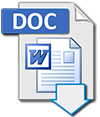Developing a Virtual Laboratory on Computer Assembly to Improve SMK Students’ Motivation and Independent Learning Skills Using the ADDIE Model
DOI:
https://doi.org/10.29240/jsmp.v9i2.14208Keywords:
Virtual Learning Experience, Virtual Laboratorium, ADDIE, Independent Learning SkillsAbstract
Students' motivation for independent learning remains low, partly due to the lack of engaging and high quality learning media. This study aims to develop a virtual laboratory for computer assembly to support high school students’ independent learning. The virtual lab was developed using the ADDIE model (Analysis, Design, Development, Implementation, and Evaluation). Data were collected through observation, interviews, and questionnaires based on the ISO 25010 instrument. Evaluation involved two media experts and ten users (two teachers and eight students), yielding feasibility scores of 110.08 and 111.8, both rated “Very Feasible.” A small-group trial with 60 students (experimental and control groups) showed a significant difference in learning outcomes (t-test sig. = 0.000), with the experimental group scoring higher (M = 51.79) than the control group (M = 36.67). These results suggest that the virtual lab has the potential to enhance students' independent learning abilities in the short term. However, caution is needed in interpreting these results, as other factors such as novelty effects, teacher influence, or students’ prior knowledge may also have contributed.
Downloads
References
Al-Duhani, F., Saat, R. M., & Abdullah, M. N. S. (2024). Effectiveness of web-based virtual laboratory on grade eight students’ self-regulated learning. Eurasia Journal of Mathematics, Science and Technology Education, 20(3), em2410. https://doi.org/https://doi.org/10.29333/ejmste/14282
Alessi, S. M., & Trollip, S. R. (2000). Multimedia for Learning: Methods and Development (3rd ed.). Allyn & Bacon, Inc.
Alfarsi, G., & Mohd Yusof, A. Bin. (2020). Virtual reality applications in education domain. Proceedings - 2020 21st International Arab Conference on Information Technology, ACIT 2020, 1(1), 68–72. https://doi.org/10.1109/ACIT50332.2020.9300056
Anderson, L. W., & Krathwohl, D. R. (2001). A taxonomy for learning, teaching, and assessing: A revision of Bloom’s taxonomy of educational objectives: complete edition. Addison Wesley Longman, Inc.
Antonietti, C., Cattaneo, A., & Amenduni, F. (2022). Can teachers’ digital competence influence technology acceptance in vocational education? Computers in Human Behavior, 132, 107266. https://doi.org/https://doi.org/10.1016/j.chb.2022.107266
Bachtiar, S. M. (2022). Mobile Virtual Laboratorium Untuk Pembelajaran Siswa Sma. Edutech, 21(2), 158–164. https://doi.org/10.17509/e.v21i2.42574
Baul Canlas, R., Cruz Piad, K., & Carpio Lagman, A. (2021). An ISO/IEC 25010 Based Software Quality Assessment of a Faculty Research Productivity Monitoring and Prediction System. ACM International Conference Proceeding Series, July 2022, 238–242. https://doi.org/10.1145/3512576.3512619
Bingimlas, K. A. (2009). Barriers to the successful integration of ICT in teaching and learning environments: A review of the literature. Eurasia Journal of Mathematics, Science and Technology Education, 5(3), 235–245. https://doi.org/https://doi.org/10.12973/ejmste/75275
Bloom, B. S., Engelhart, M. D., Furst, E. J., Hill, W. H., & Krathwohl, D. R. (1964). Taxonomy of educational objectives (Vol. 2). Longmans, Green New York.
Bogar, D. Y., Jufriansah, A., & Prasetyo, E. (2023). Pengembangan Laboratorium Virtual untuk Meningkatkan Hasil Belajar Peserta Didik. Buletin Edukasi Indonesia, 2(03), 102–112. https://doi.org/10.56741/bei.v2i03.397
Bonner, S. M., Somers, J. A., Rivera, G. J., & Keiler, L. S. (2017). Effects of student-facilitated learning on instructional facilitators. Instructional Science, 45(4), 417–438. https://doi.org/https://doi.org/10.1007/s11251-017-9410-8
Downloads
Published
How to Cite
Issue
Section
Citation Check
License
Copyright (c) 2025 Wensi Ronald Lesli Paat, Nadya Verona Viani Kamasi, Keith Francis Ratumbuisang, Merriam Listiany Modeong

This work is licensed under a Creative Commons Attribution-NonCommercial-ShareAlike 4.0 International License.


















